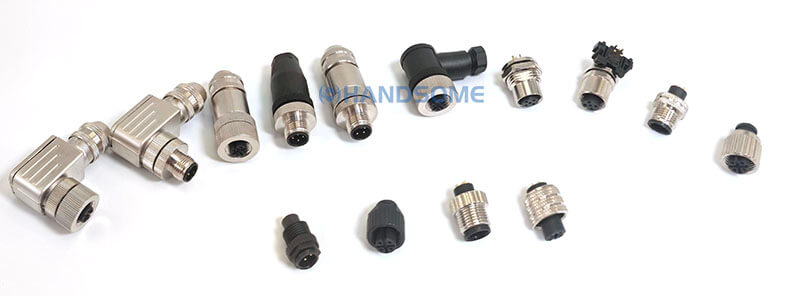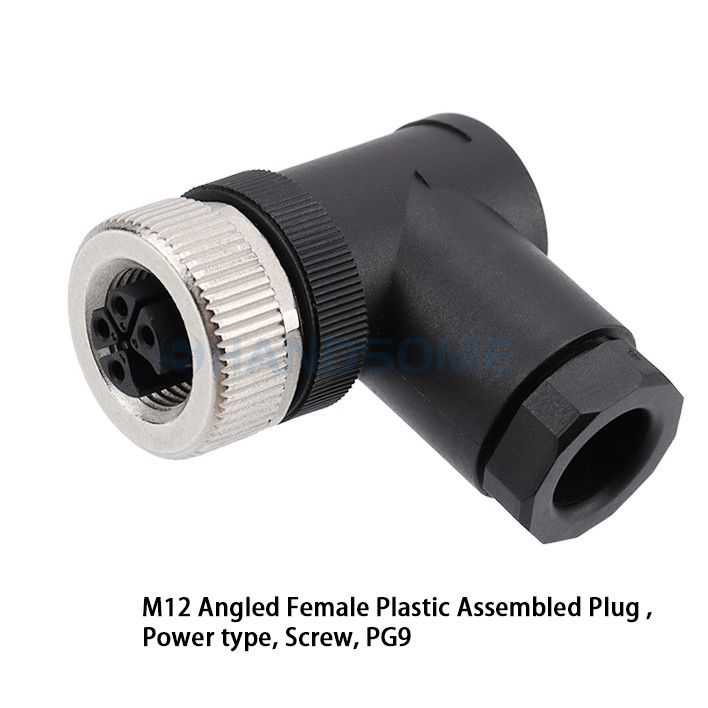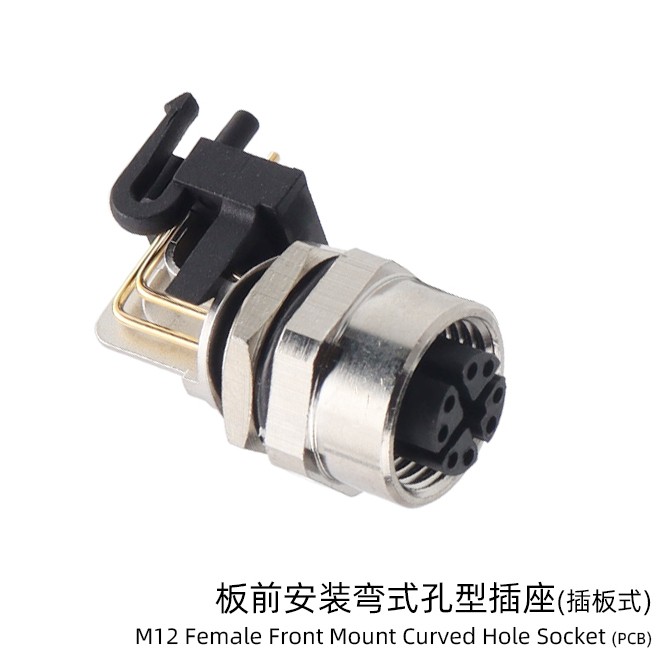Table of Contents
In industrial environments, connectors are critical to ensuring reliable performance and seamless communication between devices.
M12 connectors, with their robust design and versatile configurations, have become a popular choice for industries requiring durable and compact connections.
However, selecting the right M12 connector for a specific application can be complex due to the various types, codings, and configurations available.
This guide will help you understand the factors to consider when choosing the right M12 connector for your industrial needs.

Understanding M12 Connector Basics
M12 connectors are named for their 12 mm threaded coupling, which provides secure connections and protection against vibration, dust, and moisture.
They are available in different coding options (such as A, B, D, and X) that indicate specific pin layouts and application purposes.
Whether you need a connector for data transfer, power supply, or signal transmission, selecting the right M12 connector depends on understanding your application’s unique requirements.
Key Factors to Consider
When choosing the best M12 connector for your industrial application, keep the following factors in mind:
1. Application Requirements
First, consider what the connector will be used for.
M12 connectors can support various applications, including power, signal, and data transmission.
Identifying the primary function will help you determine the coding and pin arrangement necessary to meet the specific demands of your application.
2. Coding and Pin Configuration
Each M12 connector type is coded to indicate a specific application purpose and pin configuration:
M12 A-Coded: Typically used for sensors and actuators, A-coded connectors support 3 to 8 pins and are ideal for power and signal transmission.
M12 B-Coded: Designed for Profibus applications, B-coded connectors are used for data transfer in industrial Ethernet settings.
M12 D-Coded: Commonly used for Ethernet networks, D-coded M12 connectors support data rates up to 100 Mbps, making them ideal for industrial Ethernet and other data transmission applications.
M12 X-Coded: Built for high-speed data transmission, X-coded connectors support up to 10 Gbps, suitable for Gigabit Ethernet and applications requiring high data rates.
– Matching the connector coding with the application requirements is essential to ensure compatibility and efficient performance.
3. Data Transfer Requirements
If your application involves data transmission, consider the speed and bandwidth requirements.
X-coded M12 connectors offer the highest data rates (up to 10 Gbps), suitable for applications such as video monitoring and high-speed Ethernet.
For moderate data needs, a D-coded connector supporting 100 Mbps may be sufficient.
4. Environmental Conditions
Industrial environments can expose connectors to dust, moisture, extreme temperatures, and vibrations.
Look for M12 connectors with an IP rating suited to the environmental conditions:
IP65/IP67: These ratings indicate protection against dust and water jets, making them ideal for indoor factory settings and occasional outdoor exposure.
IP68/IP69K: For more demanding outdoor environments, connectors with these ratings can withstand prolonged immersion and high-pressure cleaning, providing reliable performance in harsh conditions.
5. Cable Type and Assembly
– Consider the cable type and assembly requirements for your application. M12 connectors are available with different cable lengths and materials, including shielded options for data transmission and non-shielded for power connections. Choosing the correct cable type is essential for secure and reliable connectivity.
6. Connector Orientation
– M12 connectors come in different orientations, including straight and right-angle designs.
The correct orientation can optimize space, reduce strain on the connection, and enhance the durability of the system.
Right-angle connectors are ideal for tight spaces, while straight connectors offer flexibility for general use.

A B C D-Coded m12 4 pin Ethernet Connector M12 Plastic Assembled Plug
Choosing the Right M12 Connector by Industry
Here’s a quick guide to help you choose the ideal M12 connector based on your industry:
Factory Automation: A-coded connectors are typically used to connect sensors and actuators in automated systems, while D-coded connectors handle Ethernet communications.
Opt for IP67-rated connectors to ensure durability in dusty and humid factory environments.
Robotics: Robotics applications often demand high-speed data and reliable connections in compact spaces.
X-coded connectors offer the bandwidth for fast data transfer, while right-angle configurations can save space.
Automotive and Transportation: In high-vibration and moisture-prone environments, choose IP68 or IP69K connectors with robust, shielded cables to ensure uninterrupted connectivity.
Industrial Ethernet: For networks requiring high-speed data transfer, D-coded and X-coded connectors provide the necessary bandwidth for reliable Ethernet communication.
Tips for a Successful M12 Connector Installation
1. Check the IP Rating: Always verify that the connector’s IP rating aligns with the application’s environmental demands.
2. Ensure Compatibility: Double-check the coding and pin configuration to ensure compatibility with your equipment.
3. Use Proper Tools: Install connectors with appropriate tools to avoid damage and ensure a secure fit.
4. Regular Maintenance: Inspect connectors regularly to prevent wear and tear, ensuring long-term performance.

A B C D-Coded m12 4 pin Ethernet Connector M12 Plastic Assembled Plug
Conclusion
Selecting the right M12 connector for your industrial application is essential for reliable and efficient performance.
By considering factors like coding, environmental resistance, data requirements, and cable compatibility, you can choose a connector that meets the unique demands of your application and environment.
M12 Connectors Related Blog
Understanding the IP Ratings of M12 Connectors for Outdoor Applications
Why Shielded M12 Connectors Matter for Industrial Data Transfer
The Role of M12 Connectors in the Future of IIoT and Smart Factories
How to Choose the Right M12 Connector for Your Industrial Application
A Comprehensive Guide to M12 Connectors: Types, Applications, and Benefits
M12 Connector Standards: What to Know Before Choosing a Connector